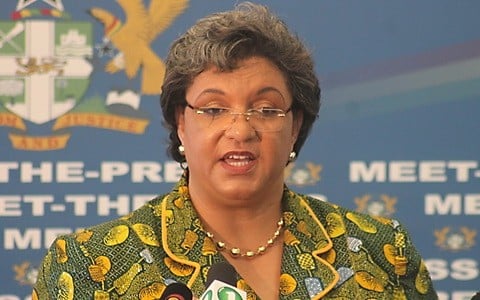The resounding victory of the National Democratic Congress (NDC) in the 2024 general election, a triumph that swept the party back into power after a period in opposition, has sparked both jubilation and anticipation across Ghana. Hanna Serwa Tetteh, a former Member of Parliament and a prominent figure within the NDC, offered a cautionary yet optimistic perspective on the party’s return to governance. She emphasized the importance of respecting the mandate given by the electorate and avoiding the complacency that, in her view, contributed to the New Patriotic Party’s (NPP) downfall. Tetteh’s message underscores a crucial aspect of democratic governance: the power resides with the people, who can and will exercise that power to effect change if they feel disregarded or underserved.
Tetteh argues that the NPP’s defeat was not simply a matter of political strategy or campaign tactics but a direct consequence of the party’s failure to connect with the needs and aspirations of the Ghanaian populace. She posits that a growing sense of disillusionment and frustration with the NPP’s governance, fueled by a perception that the party had become detached from the everyday realities of Ghanaians, ultimately sealed its fate. This perceived disconnect, according to Tetteh, created an environment where the electorate felt taken for granted, driving them to actively seek an alternative that offered a more responsive and representative form of governance. The NDC, capitalizing on this sentiment, presented itself as the vehicle for that change.
The former MP’s message to the newly elected NDC government is clear: heed the lessons of the NPP’s defeat and prioritize the needs of the people who entrusted them with power. This, she implies, requires more than just fulfilling campaign promises but rather fostering a genuine understanding of the public’s concerns and aspirations. The victory, Tetteh argues, represents not merely a transfer of power but a renewed social contract between the government and the governed. The NDC, now holding the reins of power, must actively demonstrate its commitment to serving the people and avoid falling into the same trap of complacency that led to the NPP’s downfall.
Tetteh’s admonishment carries significant weight, particularly given the high expectations Ghanaians have placed on the incoming NDC administration. During their time in opposition, the NDC campaigned on a platform of transformative change, promising improvements in critical areas such as infrastructure, healthcare, and job creation. Now in power, the party faces the crucial task of translating these promises into tangible realities. The public’s patience, Tetteh suggests, is finite, and the NDC’s success hinges on its ability to deliver on its commitments and demonstrate a genuine commitment to the welfare of the Ghanaian people.
The 2024 election, in Tetteh’s view, signifies a critical juncture in Ghanaian politics, a moment where the electorate asserted its power and demanded accountability from its leaders. The outcome serves as a stark reminder that political power is not an entitlement but a privilege earned through the trust and confidence of the people. For the NDC, the victory represents both an opportunity and a responsibility. The opportunity lies in the chance to implement their vision for Ghana and address the pressing needs of its citizens. The responsibility lies in ensuring that the lessons of the past are learned and that the new government remains attuned to the voice of the people who placed them in power.
Tetteh’s words serve not just as guidance for the NDC but as a broader reflection on the nature of democratic governance. They highlight the vital importance of responsiveness, accountability, and a deep understanding of the needs and concerns of the electorate. The 2024 election, she suggests, should serve as a potent reminder that political power ultimately derives from the people and should be exercised with humility, respect, and a unwavering commitment to serving the public good. The success of the NDC, and indeed the future of Ghana’s democracy, depends on the government’s ability to internalize this message and act accordingly.














